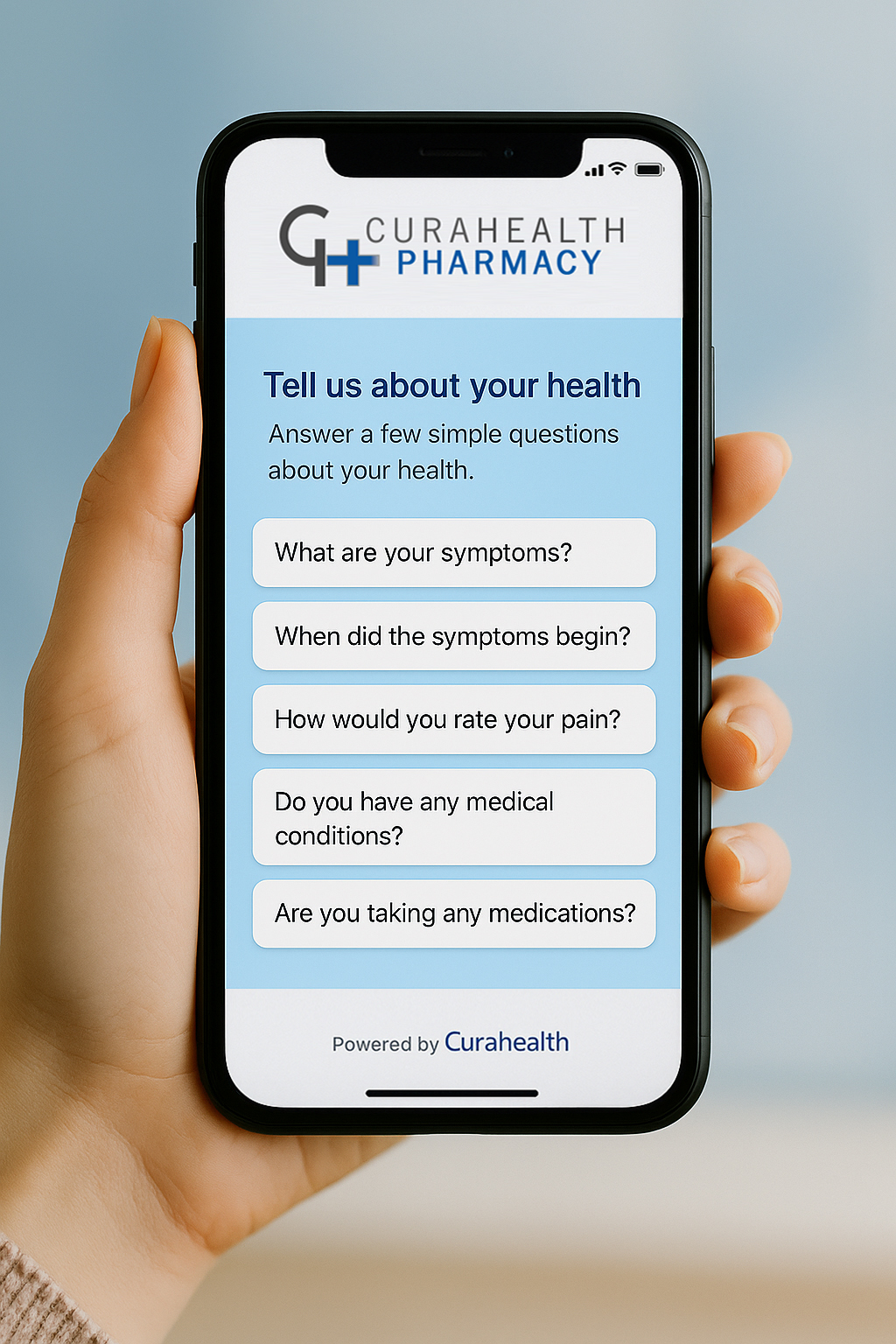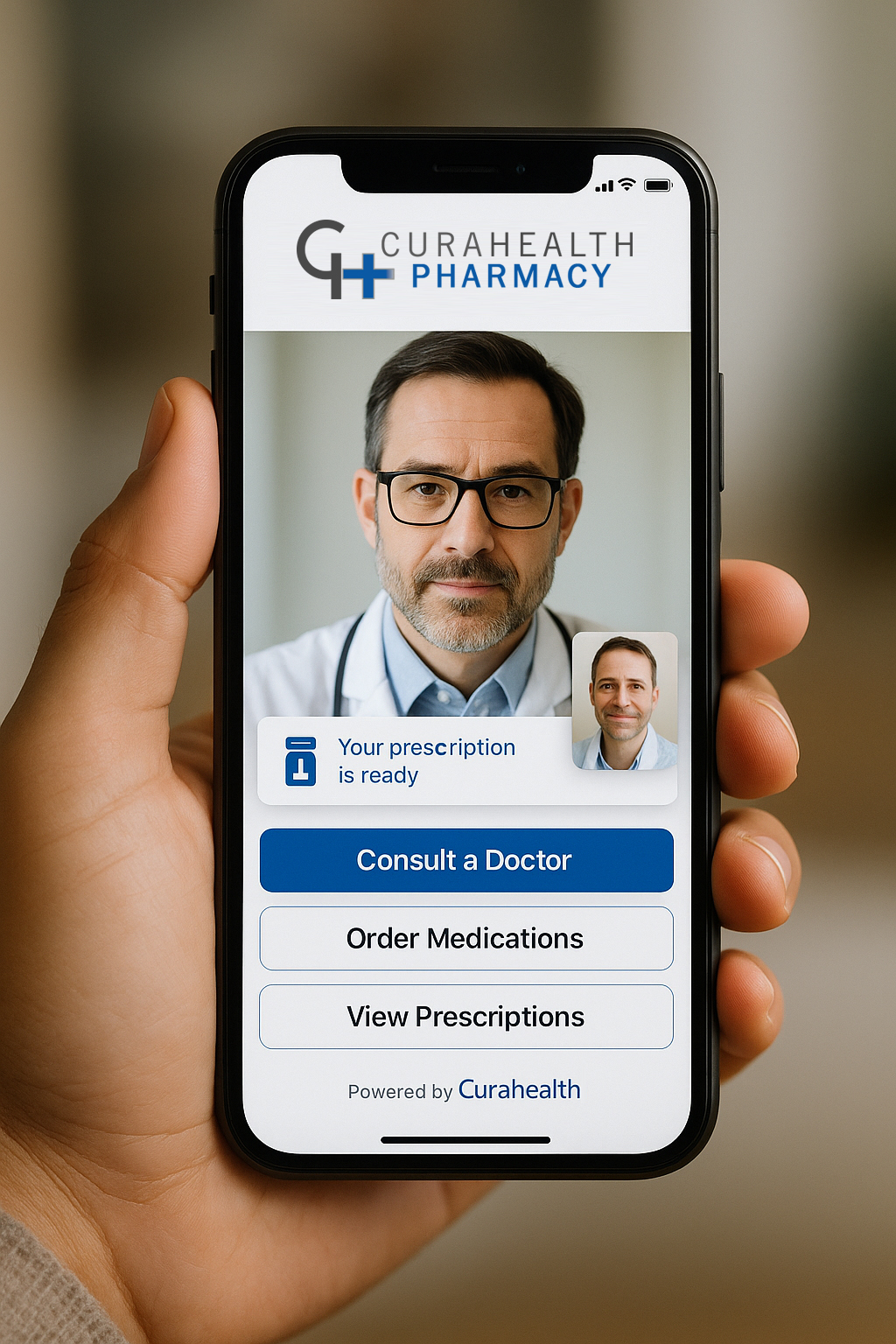Disulfiram (Generic Antabuse)
Dosage: 500 mg, 250 mg
Price: starts from $0.50 per pill



Dosage: 500 mg, 250 mg
Price: starts from $0.50 per pill



Antabuse (disulfiram) is prescribed to support recovery from alcoholism. It works by causing unpleasant reactions (nausea, flushing, vomiting) if alcohol is consumed. Taken daily, its effects can last several days after the last dose. Use only under medical supervision and avoid all alcohol, including hidden sources in food and products.
Antabuse (Disulfiram) prescription online after a confidential review by certified U.S. doctors. Fast, secure shipping and ongoing support for alcohol dependence.



Tell Us About Your Health
No need for an office visit. Just take two minutes to describe your symptoms and medical history online — anytime, from anywhere.
Reviewed by a Doctor
Our licensed provider will assess your info and recommend the right treatment. You can connect with them by message, phone, or video.
Get Your Medication
If a prescription is approved, your medication will be shipped quickly to your door in discreet packaging to protect your privacy.
Alcoholism is a medical condition that can be extremely hard to overcome. While there isn’t a one size fits all when it comes to treatment, there are a variety of options out there, that when combined, can help lead to recovery.
You’re not going to find a magical medication that will help an addict stop drinking in a day, but there is help out there that can assist in reducing the enjoyment one gets from alcohol by creating unpleasant side-effects.
If you are considering taking Antabuse or no someone who is, check out the information below for all the information one needs to make an educated decision on whether it is the best fit.
Antabuse (Generic name: Disulfiram) is an alcohol deterrent used in alcohol dependency cases. This is not a medication for someone looking to cut back on their drinking but instead aimed towards specific cases of chronic alcoholism.
Antabuse works by blocking the enzyme that is needed to process alcohol in the body. When combining this medication and alcohol, uncomfortable side effects start to present themselves.
Some of these side effects include,
Severe Side effects from mixing Antabuse and large amounts of alcohol can be fatal, some of these include,
Seek medical attention right away if you experience,
Some side effects caused by taking Antabuse even without consuming alcohol include,
When taking this medication, patients aren’t losing the craving for alcohol and there is no change in your thoughts or feelings towards it. Instead, the medicine makes the person taking it feel sick and uncomfortable thus deterring them from wanting to drink in fear of the side effects.
Antabuse is an effective medication that should only be prescribed to those suffering from severe and chronic alcoholism.
Those who have recently taken metronidazole or paraldehyde should not use Antabuse. You should also refrain from taking this medication if you have consumed any food that may contain alcohol within the last 12 hours such as cough medicine, mouthwash, cooking wines, etc.)
You should not use this medication if you,
Antabuse is a strong medication that can have significant side-effects, always take this medication exactly as prescribed by your doctor. Never take Antabuse in larger or smaller doeses or for longer periods of time than recommended by your doctor.
Antabuse used in conjunction with an alcohol addiction treatment plan or during detox may be disbursed by a caregiver or family member whenever the treating physician sees fit. Taking this action ensures patients are receiving the medication as prescribed.
When taking disulfiram, your doctor will have to run frequent testing to keep a close eye on your liver function.
The typical regimen for patients that take Antabuse starts off with a higher initial dose for the first one to two weeks, this is typically around 500mg maxdaily.
After the first few weeks, patients can start their maintenance regimen which is most often 250mg per day but can range between 125mg to 500mg, never to exceed more than 500mg per day.
Antabuse can be taken for months or even years if necessary. This medication should be used until the patient is able to practice self-control on a permanent basis in social settings and alone (Fully recovered).
Can You Take Antabuse While Pregnant?
Taking Antabuse during pregnancy can lead to serious complications and possible congenital abnormalities to the fetus. It is not advised for pregnant woman to take this medication during any trimester. Woman who are breastfeed should also refrain from taking Antabuse as there is little information available to understand the effects it can have on infants.
Can You Take Antabuse at Different Times Throughout the Day?
It is best to take Antabuse at the same time each day. While it is often recommended to take the medication first thing in the morning, some patients find it beneficial to take it at night due to the sedative effects.
What Should You Avoid While Taking Antabuse?
You should never consume any food or product containing alcohol, this includes alcoholic beverages, cider vinegar, some salad dressings, mouthwash, cold medications, aftershave lotions, pesticide fumes, chemicals like resin, waxes, dyes, and gums, paint thinners, lacquers, large amounts of caffeine, etc.
All these products can interact with the medication, causing unpleasant side effects.
How Long do the Side Effects of Antabuse Last?
The side effects caused by mixing Antabuse with a product containing alcohol can last anywhere from a half an hour to several hours. If the symptoms do not start to subside or seem to get worse after a few hours, you should contact your doctor right away.
What Medications Interact with Antabuse?
Various drug interactions can affect the way your medication works when taking Antabuse, some causing serious and life threating side effects. Always talk with your doctor and pharmacistabout the medications you are currently taking and (prescription and non-prescription) to ensure adding this medication is safe.
Some medications that can negatively interact with Antabuse include could syrup, blood thinners, seizure medications, metronidazole, benzimidazole, amitriptyline, isoniazid, and fenzolinetant. Always keep a list of your current and past medication on hand before starting a new prescription.